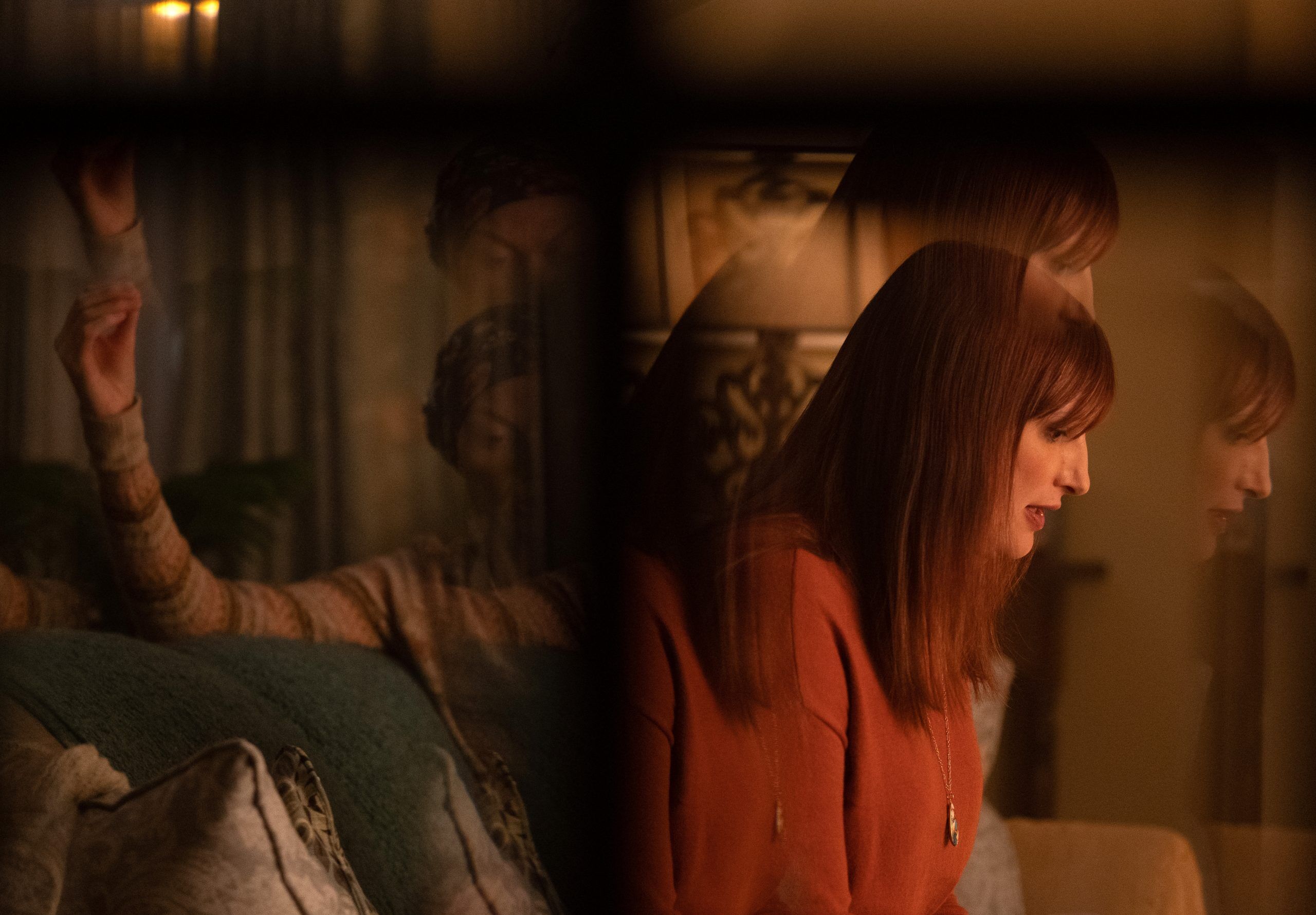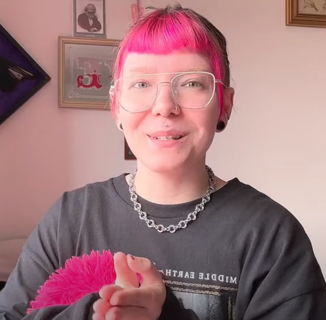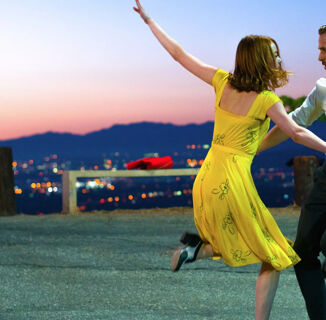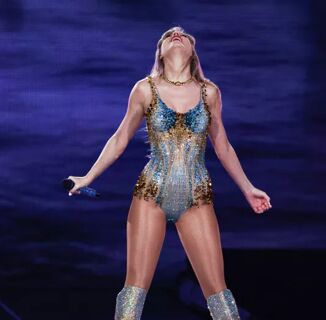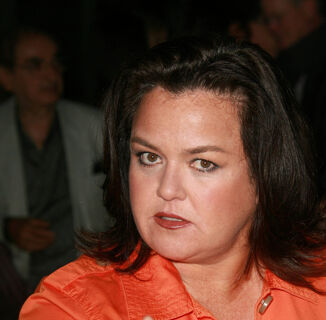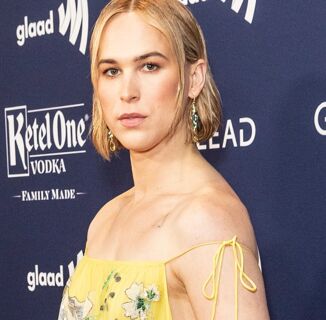In late 2020, CBS announced that “Clarice,” a procedural drama series set in the direct aftermath of Silence of the Lambs, was set to air in 2021 on CBS. This announcement came on the heels of Sam Feder’s Disclosure, a Netflix documentary examining Hollywood’s role in portraying trans lives on screen, showcasing how decades of harmful representation has had a lasting impact on trans lives and notably, trans actors. Jen Richards, one of many trans actors featured in the documentary, gives a heart-wrenching speech in the latter part of Disclosure, where she details the hard realities that so many trans people face, with their families and friends and the loss of those connections. Shortly after “Clarice” was announced, it was made public that Richards would be involved in the show, initially as a consultant but later as an actor herself, appearing in a three-episode arc directly addressing Silence of the Lambs’ complicated history with trans representation. I spoke with Richards just before the first episode of her arc went to air.
The first episode you’re in, have you seen it?
I have, yes
How did that feel to watch yourself on screen in the particular context that “Clarice” exists?
I thought it was really well managed. The thing about making TV is that it’s one thing when it’s just ideas in the writers room, it’s another when it’s on script, it’s another thing when you’re on set performing and it’s a whole other thing when you actually see it on screen. This is one of those cases where what ended up on screen was pretty faithful to the script and to what we talked about. And with that added aura of all the wonderful visuals that the creative team have come up with, I thought it was really compelling. I really like the moment when [my character] Julia confronts Clarice about Buffalo Bill, I thought it was really effective.
I had read a headline earlier that had written it as, “this is reframing the Buffalo Bill story” Do you think it’s less about reframing Buffalo Bill and more finally having the conversation about it, addressing the elephant in the room, so to speak?
Yes, absolutely. I think the show does two things in regards to Buffalo Bill. One is—you know, within the character of Julia, it confronts the harmful legacy of Buffalo Bill. What’s really brilliant about Eleanor’s (Eleanor Hall, the trans writer of the episode) writing in this episode is that Julia is a stand-in for the trans audience that had to deal with all these comparisons to Buffalo Bill over the last 30 years, but she grounds it in a very personal, intimate moment between two characters within that world. It’s really about the harm that that story has caused Julia, and I think Eleanor did a really good job of doing both of those things simultaneously. So while what Julia is saying is true for all trans people, it’s still really just about within the world of Silence of the Lambs and the impact that it’s had on Julia. But I wouldn’t call it a reframing, because it’s just an acknowledgement. We’re not looking at it differently, we’re just acknowledging that this caused a lot of a lot of harm that Clarice in particular was complicit in either creating or just passively allowing a narrative that links trans people to violence [to develop.]
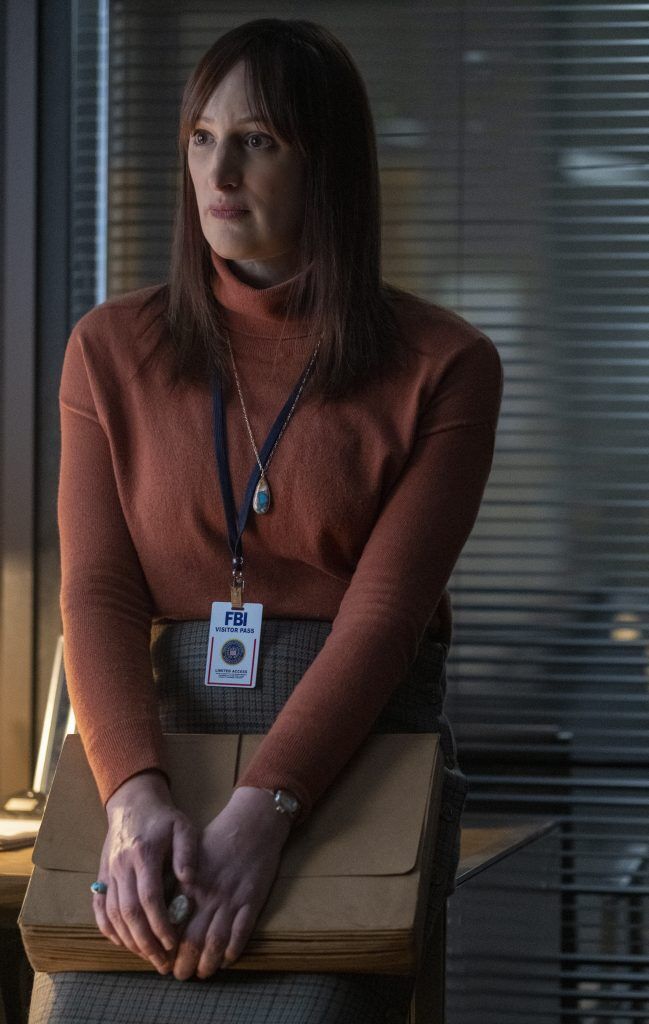
Pictured Jen Richards as Julia Lawson
Photo: Brooke Palmer ©2020 CBS Broadcasting Inc. All Rights Reserved
In real life, we tend to be the victims of violence, not the perpetrators. What I love about the show is that it went beyond that. It didn’t just confront the transphobia and provide this moment of possible healing and catharsis, but it said: “Okay, now we’ve done that let’s, let’s keep going. Let’s see what else she can do.”
Part of what I love about this character is that her transition is part of the narrative, but she can’t be reduced to that one thing. In the next couple episodes, it becomes more about her accounting skills and her desire to do the right thing and the risks that come along with doing it. So it looks back and also looks forward to create a better model for how trans representation can be done, particularly in network procedurals
The thing that really grabbed me watching your episode was how your transness isn’t really addressed until later. It doesn’t seem to be integral to your character, so much as it is sort of necessary to have the conversation that you have with Clarice.
I think that’s right, and that’s the kind of representation I’ve been in search of. I’ve done the thing where you’re the kind of “special episode” where the trans person comes on and the protagonist learns some kind of moral lesson from that, and that’s important, I get that. Then there are other times when I’m on a show, and there’s absolutely no mention of my gender, and there’s this assumption that if my character isn’t talking about being trans then somehow she’s cis. And my character is always trans whether it’s mentioned or not, my characters are always trans because I am. A person of color doesn’t suddenly become white because their character [doesn’t explicitly reference being] a person of color.
“Julia is a stand-in for the trans audience that had to deal with all these comparisons to Buffalo Bill over the last 30 years.”
The same thing goes with transness. The way that it works in my real life is how I’d like to see it reflected on screen, which is that my transness is a part of who I am, it informs my identity it’s a big part of my past and shaping who I am, but doesn’t really come up that much on a day-to-day basis. And I think Julia is a really good example of that kind of character.
It struck me that Clarice is less a continuation of Silence of the Lambs as it is a story about trauma: specifically Clarice’s trauma around Buffalo Bill. Do you think it would be possible to have that amazing monologue you deliver without having that trauma context?
That’s a complicated question, isn’t it. I think I actually said something along those lines in Disclosure which is that there’s all this representation that causes trauma and pain, but without that representation, would I have even known I was trans? I think for my generation of trans actors and writers, we are so shaped by the trauma of bad representation that we’ve seen over the years. It’s always going to be an aspect of what we do. But I think for younger people, they have a very different sense of what it means to be trans in the world. There are kids today that grow up seeing trans people on screen, like actual trans actors playing trans parts and doing positive roles, so I hope that that kind of pain and trauma isn’t going to continue to be definitive for the next generation.
I remember when TV shows used to do a “very special episode” around sweeps week. Do you think we’re able to finally move into a space where just doing a very special episode isn’t enough anymore.
I do. I just don’t think that’s sufficient anymore. Disclosure has had an incalculable impact on the industry already. People are aware of what’s been done wrong before, and they also feel a moral imperative to do it better going forward. [This is] in part because they feel complicit, either as makers or as audience members who are only now realizing they laughed at the real pain of trans people for many years. That’s had a big impact. And I think the fact that, particularly for younger people, trans people are just part of their lives: they have trans friends, they have trans colleagues and I don’t think I’ve met a young person in the last few years that doesn’t have at least one trans person in their school. When it gets to that point, when anyone who’s watching a piece of media can say, “Oh, I know someone who’s trans or who’s an immigrant and that [representation] is not good enough or that’s not right, that kind of pushback will set the bar higher for representation.
“For younger people, trans people are just part of their lives: they have trans friends, they have trans colleagues.”
I’m a writer on two other TV shows right now, and in both of those shows, transness is included in the writing, in part because of my perspective. But the shows aren’t necessarily just about that, and I’m one of several trans actors working in Hollywood right now. So the more that we are an open and out part of the industry, behind the scenes and in front of the camera, I just don’t think very special episodes are going to be sufficient.
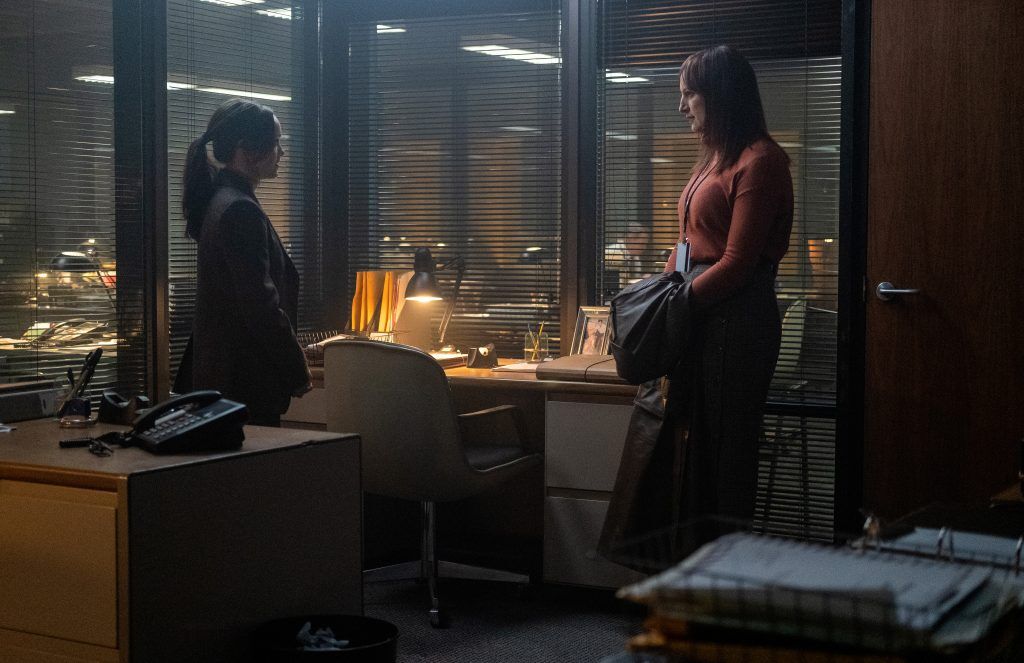
Pictured (L-R) Rebecca Breeds as Clarice Starling and
Jen Richards and Julia Lawson
Photo: Brooke Palmer ©2020 CBS Broadcasting Inc. All Rights Reserved
I loved when your partner in the show tells you, “tell Starling what she did” before you go in and give her your speech. Did that feel a little bit like being a surrogate for trans women that knew you were going to be on the show?
100%. That was certainly our intention. I think we knew from the start that Julia was always going to be a stand-in for the entire trans community, and that the only way to successfully have a trans person in the world of Silence of the Lambs was to confront that. First, we have to acknowledge the pain that’s been done before we can move forward. And Erin, my partner in the show, is also partly informed by my own wife, who often has much stronger feelings about trans issues than I do. As someone who has been out for a decade, I’m at the point where I’m done repeating myself. There are a lot of battles that I’m no longer willing to take on. My wife is very, very protective of me, so she’s more assertive. Earlier in the episode, when Clarice comes to our home and hands out a business card, it’s Aaron that grabs the card and tells them to leave. That was very much informed by my wife Rebekah [Cheyne.]
Did you feel like there are easter eggs in there for trans women to be able to see themselves reflected in the role?
I hope so. At the end of the day, it is a network procedural, so there’s a lot of plot to get through. But yeah, I think there are little things in there. There’s a moment in the first episode where we have a villain deadname Julia, and I think that’s the kind of moment that will land, particularly with trans people. It’s so specific, and it’s something evil for the bad guy to do.
In real life, we tend to be the victims of violence, not the perpetrators.
I think that’s the kind of thing that trans people appreciate. We know what it means to be deadnamed where it can seem like an innocuous accident to an outside cis perspective, but for a trans person, we know what it means and how it feels when someone does it intentionally. We know that there’s a kind of violence in that.
That moment in particular stood out to me. Was it hard to figure out the right way to do something like that? Deadnaming is such an act of violence and also a trope that’s often used in media against trans women.
We talked a lot about in the writer’s room. We knew that we wanted to have this moment where Joe Hudlin let Julia know that he has power over her, and that she’s in danger. And Eleanor and I really wanted to be trans-specific, just to speak to that particular issue. I don’t remember exactly, but I’m assuming it was Eleanor’s idea to come up with the deadnaming. Part of what was so appealing about that idea was the fact that it’s the kind of thing that might seem like an intimate, innocent mistake to someone else. Like if someone else had heard Joe in that moment, it could be like “oh he misspoke” or “oh no you didn’t hear that correctly.” It’s the kind of thing that can be done in full sight and only the trans person knows what’s really going on, which just makes it all the more terrifying. So yeah, I think that that moment was definitely the result of a lot of discussion about what would be most trans-specific and pointedly evil for a trans person.
The speech that you deliver to Clarice in her office, how did that feel for you? I know you’ve mentioned that you love the movie Silence of the Lambs, and was such a big movie and it’s such a fantastic film. How did it feel to get the opportunity to sort of speak to it in that way, almost like you’re speaking to the legacy of it as a whole?
It was quite profound for me. It was a real full-circle moment, because the story I’ve told often, 10 years ago, I was on the eve of my own transition. I was checking in with colleagues and friends to see if I would still have a job and still have friends after transition, which wasn’t a given 10 years ago. One of my colleagues turned to me and said “like Buffalo Bill?” That was their only frame of reference, which is certainly not what you want people to think of when you’re telling them something really personal and vulnerable. To tell that story in Disclosure and then to have the showrunner see that, and for them to want to do “Clarice” right and then hire me to be the consultant, and then to eventually perform in and then have a monologue that was exactly about that really closes the circle for me.
“There’s all this [bad] representation that causes trauma and pain, but without that representation, would I have even known I was trans?”
And I have to give a lot of credit to our director Deborah, who had me improvise my way through the scene on a take after we’ve warmed up. We were getting deep into it, and she just let me talk for a long time and get really personal. Then she took all that emotion and, without cutting, we just did another take by the script and I got to take all of that feeling into the line. She checked in with me beforehand, and we had a long talk. We got to know each other, talked about my feelings about Silence of the Lambs and about the character Buffalo Bill.
Back when I first started doing TV, I would come on set, and quite often I was the only and the first trans person that anyone on set had ever met, and I was certainly the only trans person on set. And now I think at least two of the cast and crew who I’ve talked to have trans kids, a lot of them have trans friends, and there’s a trans writer. Having that kind of support around you, just knowing that the discussion has moved forward so much means that the proportion of my time that is spent on performance compared to advocacy gets to shift a little bit. It means I can spend more time just working on my craft instead of having to constantly be an advocate for all trans people.
At one point, your partner in the show says “people like us don’t get these things” when you’re talking about having insurance. The show is set in 1993 or 94: how interesting is it to have that line in a show set in the mid-1990s and then think about where we are in 2021 and know that the needle hasn’t moved as far as it should have in 30 years?
I’ve been out long enough, and I’m certainly aware of the progress that’s been made. I think for Erin and Julia, it’s both because Julia is trans and it’s because they’re a lesbian couple, so just being queer is really, really hard, and they recognize that Julia’s position is a really enviable one.
I think around that time as well, the kind of default goal for a trans woman would have been to go stealth, to just disappear as a trans person and have a decent life and just assimilate fully. And so I think Julia is a representation of someone who is probably aspiring for that, and then we slowly see her come out of her shell in order to help other women.
I think it’s a great story. ♦
Niko Stratis is a freelance writer whose work has appeared in places like Xtra, Bitch, HuffPo Canada, THIS, and Spin. Her writing tends to focus on issues pertaining to queer and trans people, something she as a queer trans woman is adequately qualified to do. She lives in Toronto, Ontario with her partner and their dog and cat. She is a cancer.
Help make sure LGBTQ+ stories are being told...
We can't rely on mainstream media to tell our stories. That's why we don't lock our articles behind a paywall. Will you support our mission with a contribution today?
Cancel anytime · Proudly LGBTQ+ owned and operated
Read More in Culture
The Latest on INTO
Subscribe to get a twice-weekly dose of queer news, updates, and insights from the INTO team.
in Your Inbox

